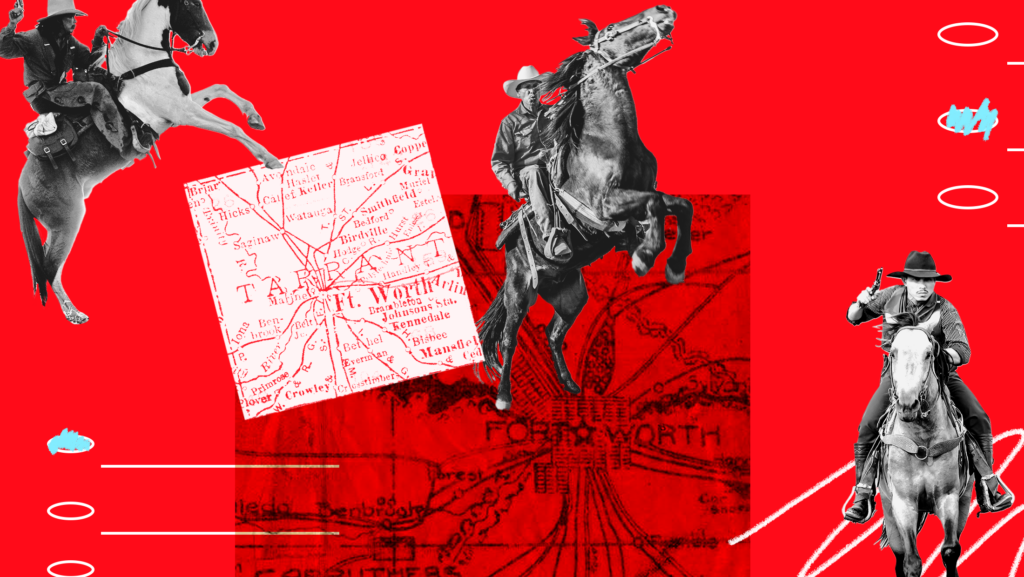Crystal Mason’s Prosecutors Want an Election Crime Task Force

In February of this year, the newly elected top executive for Tarrant County, Texas — which includes Fort Worth — Tim O’Hare announced the creation of an “election task force.” Standing with Tarrant County Sheriff Bill Waybourn and District Attorney Phil Sorrells, O’Hare admitted there was no real need for the task force, but tried to position it as preventative: “Is it OK to have one bank robbery or two?” O’Hare said. “Is it OK to have one kidnapping or two or three? So there shouldn’t be any voter fraud, and this will help go a long way toward deterring it.”
The three men — all Republicans — later participated in a forum for the True Texas Project, a far-right group that was formerly called the NE Tarrant Tea Party and argues for a separate Republic of Texas, alongside sponsoring anti-trans legislation. At that session, O’Hare urged the 75 audience members to go out and vote in the May 6 local elections. He particularly targeted Fort Worth City Council members.
This month, O’Hare went on Who’s Counting with Cleta Mitchell to tout his task force, which includes two deputies and an assistant district attorney. He claimed that it would solve all sorts of problems from unruly people inside a voting location to suspected “cheating” to those who “do their own investigative research.” “Quite a few people called” the hotline already, he told Mitchell, a GOP election lawyer who has admitted that her goal is to suppress the vote.
As part of the “Stop the Steal” movement, elected sheriffs, alongside other county election officials, have pushed for more authority in policing elections, including guarding ballot drop boxes, investigating community complaints against various individuals or seizing voting machines for “forensic” examinations. In Kansas, a sheriff claimed to be investigating multiple cases of voter fraud, but could not produce public records to support any potential crimes. A Wisconsin sheriff conducted an intrusive investigation into voters at nursing homes, but the prosecutor (also a Republican) refused to pursue the case.
If the goal is to disrupt good governance and insert law enforcement where it is not needed, the task force has already done its job.
All of this additional policing of the vote is not only unnecessary — every county in the United States already has a system for ensuring votes are properly counted — but the move is also designed to intimidate election officials and suppress the votes of people who already face excessive criminal system surveillance: Black and Brown communities, immigrants and people with criminal records. It’s not a coincidence that election policing arose as an issue in Tarrant County, a growing and changing region in North Texas that was once a reliable GOP stronghold but now is increasingly left-leaning.
Tarrant County prosecutors did not hesitate to send Crystal Mason to prison. A Black woman who was told she could vote on Election Day in 2016, Mason was sentenced to five years in prison for voter fraud because it turned out she was ineligible to vote since she was on supervised release. The irony, of course, is that prosecutors wanted to send Mason to prison for filling out a provisional ballot that was never even counted. There was quite literally no harm done.
The new task force seems destined to create more victims like Crystal Mason. Even if people do not serve prison time or are prosecuted, the threat of government surveillance and the disruption of their lives — Mason has spent over five years fighting her conviction — is enough to turn away those who already feel targeted by law enforcement.
Earlier this year, during a February meeting, members of the public testified largely in favor of Tarrant County’s election task force, expressing anxieties about voter fraud that were largely stoked by a small handful of election deniers who spread misinformation. Waybourn, the county sheriff, was unable to provide any specific example of fraud, but explained that he thought the message was the most important: “The whole idea of the DA and sheriff standing together, I think it’s a very important message to the community, and I think it’s a very important message that we’re centralizing that…I think it’s a very important message that this is being handled by professional investigators and professional prosecutors.”
Notably missing from the proposed task force was the then-Tarrant County Election Commissioner Heider Garcia, who was targeted by far-right agitators and accused of being a “Venezuelan-born operative.” Garcia testified to the number of death threats and other harassing messages he has received.
Despite the harassment, Garcia was widely praised by both Republicans and Democrats for his transparency and fairness; he has been held up as a model for election officials nationwide. He even held public informational sessions and a mock election before the 2022 midterm elections so that community members could see for themselves how and where votes were counted.
Garcia recently stepped down, citing a conflict with O’Hare, who publicly called for an assessment of Garcia’s performance. In his letter, Garcia noted that his mission to have fair and transparent elections “stands on respect and zero politics.” He added: “Compromising on these values is not an option for me.”
Garcia’s resignation is just the first casualty of the task force, an incalculable loss of a professional committed to a job that is increasingly fraught. If the goal is to disrupt good governance and insert law enforcement where it is not needed, the task force has already done its job.
Jessica Pishko is an independent journalist and lawyer who focuses on how the criminal justice system and law enforcement intersects with political power. As a contributor to Democracy Docket, Pishko writes about the criminalization of elections and how sheriffs in particular have become a growing threat to democracy.